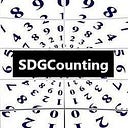2024 World Economic Forum
Following the WEF Annual Meeting through the lens of the SDGs and Data
From January 15–19, world leaders, global experts, social entrepreneurs, and members of the media will gather once again in Davos, Switzerland for the World Economic Forum Annual Meeting. The theme is officially ‘Rebuilding Trust’. However, as anyone who has followed the event before will know, the topics covered will be as diverse as the 100+ countries represented
With over 200 sessions spanning five days, there is a lot to take in. Our team at SDGCounting has scoured the programme to highlight the most important conversations if, like us, you are interested in the Sustainable Development Goals and the data used to track and report on them. In addition to the outlined sessions, there will also be myriad SDG-related talks on topics such as gender equality, the environment, and sustainable production and consumption.
Here is our list of what you should pay attention to:
- Open Forum: Liberating Science
- Generative AI: Steam Engine of the Fourth Industrial Revolution?
- First Movers for Frontier Clean Technologies
- The World in Numbers: Inequality
- The End of Development?
- The World in Numbers: Jobs
- Press Conference: UpLink Mobilizes CHF 38M for SDGs
- Mapping Solutions for: Extreme Weather
- Mapping Solutions for: Energy
- Mapping Solutions for: Trade and Investment
- Press Conference: Swiss Supercomputer for the SDGs
- The World in Numbers: Gender Parity
- Rebuilding Trust in Science
- Prosperity Through Data Infrastructure
Most of the 200+ sessions will be live streamed and made available for later viewing on the WEF website. Click the date and time links below to find the sessions and check back with us later as we delve deeper into the themes of #WEF24.
Also, be sure to check out the sessions our sister organization StartingUpGood has identified as being most relevant for startups, entrepreneurs, and investors interested in accelerating social and environmental impact worldwide
Open Forum: Liberating Science
Monday, January 15, 2024
18:30–19:30 CET (12:30pm EST)
A philosophy of openness has the potential to accelerate breakthroughs in research and technology while directly confronting questions on trustworthiness and bias in science.
What can the global scientific community do to promote new forms of collaboration and reproducibility in science to fast-track progress?
Generative AI: Steam Engine of the Fourth Industrial Revolution?
Tuesday, January 16, 2024
08:15–09:00 CET (2:15am EST)
The development of generative AI has catapulted AI technology to one of the fastest and most impactful innovations of the Fourth Industrial Revolution. From creation to production and distribution, some predict its effect on global value chains is analogous to the steam engines of the Industrial Revolution.
With added qualities of speed, and accessibility, what is the implication for industry worldwide and how do leaders manage its risks?
This session is linked to the AI Governance Alliance of the World Economic Forum
First Movers for Frontier Clean Technologies
Tuesday, January 16, 2024
08:15–09:00 CET (2:15am EST)
The First Movers Coalition, launched at COP26 in Glasgow in 2021, has garnered an unprecedented $16 billion in aggregated demand for emerging climate technologies and the support of 13 governments which together represent more than 50% of global GDP.
What are the lessons learnt and what lies ahead in the journey to speed up and scale these technologies?
This session is linked to the First Movers Coalition of the World Economic Forum
The World in Numbers: Inequality
Tuesday, January 16, 2024
15:00–15:30 CET (9:00am EST)
The richest 10% of the global population currently hold 76% of all wealth, whereas the poorest half of the population hold less than 2%.
As policy-makers look to rekindle growth in a high debt environment, how can they address the dilemma of reducing inequality without undermining macroeconomic stability?
This session delves into the multiple dimensions of global inequality, its social and economic costs, and the policy choices to address these challenges.
The End of Development?
Tuesday, January 16, 2024
15:00–15:45 CET (9:00am EST)
Globalization fatigue, geo-economic shocks, industrial policy in advanced economies and rapid technological transformation risk reversing the trend towards global economic convergence.
What practical solutions can continue progress in rising living standards around the world?
This session is linked to the Future of Growth Initiative.
The World in Numbers: Jobs
Tuesday, January 16, 2024
16:00–16:30 CET (10:00am EST)
A quarter of jobs face disruption — both growth and decline — due to geo-economic, technological and green transition trends in the next five years.
This session delves into the trends defining the future of jobs and explores optimal policy, employer and worker responses.
Press Conference: UpLink Mobilizes CHF 38M for SDGs
Wednesday, January 17, 2024
08:00–08:30 CET (2:00am EST)
Four years on from its launch at the Annual Meeting in 2020, UpLink, the World Economic Forum’s open-innovation platform, has raised CHF 38 million in funding commitments through to 2027 to further strengthen its thematically-focused innovation ecosystems that are supporting early-stage, purpose-driven start-ups and accelerating progress towards the SDGs. In this session, leaders from UpLink’s founding and funding partners will announce the focus areas of their respective partnerships and discuss how these commitments will benefit impact ventures and investors around the world, as well as share key findings from UpLink’s Annual Impact Report.
Mapping Solutions for: Extreme Weather
Part 1
Wednesday, January 17, 2024
09:30–10:00 CET (3:30am EST)
Part 2
Thursday, January 18, 2024
10:30–11:00 CET (4:30am EST)
Extreme weather events, such as heatwaves, floods and droughts (sometimes in parallel), are raising awareness that collective action is vital to address the climate crisis.
This session explores the impact of climate risks through time and maps the areas where international cooperation on climate and nature can be strengthened.
The Global Situation Space combines NASA time-lapse satellite imagery and geospatial and econometric data with predictive modelling.
Mapping Solutions for: Energy
Part 1
Wednesday, January 17, 2024
10:30–11:00 CET (4:30am EST)
Part 2
Thursday, January 18, 2024
09:30–10:00 CET (3:30am EST)
The world is in the midst of a large energy transition as it seeks to ramp up renewable energy capacity. From a more active industrial policy to decreasing production costs, this session explores the causes and consequences of the energy transition through time and identifies solutions on how countries can cooperate further to turbocharge the transition.
The Global Situation Space combines NASA time-lapse satellite imagery and geospatial and econometric data with predictive modelling.
Mapping Solutions for: Trade and Investment
Part 1
Wednesday, January 17, 2024
11:30–12:00 CET (5:30am EST)
Part 2
Thursday, January 18, 2024
17:00–17:30 CET (11:00am EST)
Geopolitical tensions are changing trade and investment flows as countries move towards “friendshoring” rather than seeking out the most efficient partner, leading to a subpar trade growth of 0.8% in 2023.
This session explores the causes and consequences of the current trade and investment framework through time and solutions to stem the tide of fragmentation.
The Global Situation Space combines NASA time-lapse satellite imagery and geospatial and econometric data with predictive modelling.
Press Conference: Swiss Supercomputer for the SDGs
Wednesday, January 17, 2024
13:00–13:30 CET (7:00am EST)
In this press conference, the Swiss Foreign Ministry in collaboration with Swiss-AI initiators (ETH, EPFL, SCSC) and the Members of ELLIS network reveal the new International Computation and AI Network of Excellence initiative (ICAIN), which aims to develop and test AI models to advance the United Nations Sustainable Development Goals and humanitarian aid.
The World in Numbers: Gender Parity
Wednesday, January 17, 2024
15:00–15:30 CET (9:00am EST)
At the current pace of change, it will take 131 years to achieve full gender parity.
This session delves into the current state of gender equality and the most promising pathways to accelerate gender equality in public and private sectors.
Rebuilding Trust in Science
Friday, January 19, 2024
09:00–09:45 CET (3:00 am EST)
Trust in science and scientific institutions is critical for global collaboration and for data- and fact-based decision-making.
What can the global scientific community do to enhance the trust of the public and build new avenues for collaboration?
Prosperity Through Data Infrastructure
Friday, January 19, 2024
10:15–11:00 CET (4:15am EST)
Advances in AI technology are underpinned by a robust infrastructure that includes data, computing resources and development tools.
How can we align infrastructure development with the rapid advance of AI to promote global competitiveness and inclusion?
SDGCounting is a program of StartingUpGood and tracks the progress of counting and measuring the success of the SDGs. Follow us on social media:
For the latest on innovative entrepreneurship and social enterprise, check out StartingUpGood on Twitter/X and LinkedIn.

